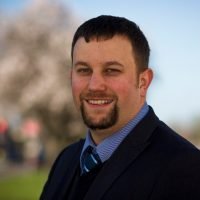I don’t care what you do—just do something!

I am perched on the edge of a cream leather sofa which has been rapidly cleared of freshly-ironed clothing. There is a bustle of activity going on as my wife and I relent and agree to a cup of tea. I don’t really want a drink—I don’t want to impose—but I realise I need to allow the mother of the house to serve us, the unexpected guest, with some measure of hospitality. I must allow the family a small amount of control and normality. I want to give them an opportunity to speak. They must have so much going on inside—it must feel like the roof has gone from over their heads.
The father of the house passed away of COVID complications just a couple of weeks ago. He had been suffering with some serious underlying conditions, but they must have felt that, with everyone in the family vaccinated, they were over the worst of it. Although he had not been well for a long time, he was still the anchor for the family.
On our arrival at the home, we were ushered in. My wife turned to the mother: “We’re so sorry for your loss…” Before she had finished speaking, the mother began to cry, and they hugged. This reaction was contrasted with that of the son, whom I have known for several years. He was the reason we had arrived unannounced. We wanted to send a card and a gift, but we didn’t know the house number. This seemed like a prompting to visit. He is 17 and I squeezed his shoulder as he showed me into the sitting room and my seat. He was polite, but barely holding back the tears.
The older sister is the spokesperson for the family. As I sip my tea, she willingly tells me the bureaucratic hoops that they are facing, and asks some hard questions: Will the council take their house? What should they do with their father’s car? She has just finished a degree in architecture but feels she cannot pursue this due to the family’s financial need. She’s considering applying for shop work just to provide for her family.
I can sense amid the practical questions and offers of help that there is a need to talk about their father’s time in hospital. I glance out of the window and can see the hospital, not ten minutes’ walk from where we are sitting. They then recount what we had expected but had hoped not to hear. Their father had been admitted to hospital with pneumonia. As his condition worsened, and he was taken into intensive care, the hospital had refused the family any visit. Within two weeks of admission, he had passed away. They had not seen him at all during this time.
Now, I know there are two sides to this story. And the challenge faced by hospitals in ensuring safety of patients, communities and staff is real. But it seems inhumane to not allow this family to spend just a little time with their dying father. Put the whole family in a hazmat suit if you must, but he was dying. What danger was he in from them? In this instance, the system triumphed over service to this family.
Systems are controlling and lack humanity; they can lead to moral injury. We are supposed to have a National Health Service, not a National Health System. No wonder the son had confessed that he feels angry. No wonder he doesn’t know if he is wants to fight or weep.
There are far too many stories like this that we keep hearing about at FaithAction. They demonstrate a lack of compassion, a kind of risk-averse legalism which is doing real harm to people and their families. We need a rebalancing, and we need people, in the cold light of day, to look at what is happening and redress things.
What I have learned is that these changes can’t be Ieft to the next guy. You and I have a role to play. If we want services that serve the people, we need to give our insight and our time. Essentially, this is about lending services our intelligence.
This little film was created for the Electoral Commission in 2004. “I don’t do politics,” says one gentleman to another, before realising this means he is unable to have a say about pretty much everything. I find it a helpful reminder of why we need to take part in society today and speak up about those things which matter. There are of course may ways we can participate, but I want to tell you about two current opportunities within FaithAction.
Firstly, last week FaithAction announced our Health and Wellbeing Collective (HaWC). The group is free to join and is your opportunity to feed back to us and policymakers at a national level about changes to health and social care. Read more about it, and how to get involved, here.
But why not also check out your local Healthwatch? Healthwatch is the health and social care patient champion that you can talk to about matters in your local area. It’s a source of advice and guidance, as well as a place to share experiences of care, both good and bad. The FaithAction team operate Healthwatch Barking and Dagenham, and we are always looking for local connections – do drop Manisha a line.
If you want to help the family written about above with connections that they may find useful, or even work placements, please do get in touch with us at [email protected]

About Daniel Singleton
National Executive Director
Daniel Singleton has been the National Executive Director of FaithAction since 2007. This role has seen Daniel forge close working relationships across a number of national government departments, as well as local statutory and voluntary-sector bodies. As part of FaithAction’s mission to connect national and local government with grassroots organisations, Daniel also meets regularly with FaithAction member groups to help them develop in their social action.


